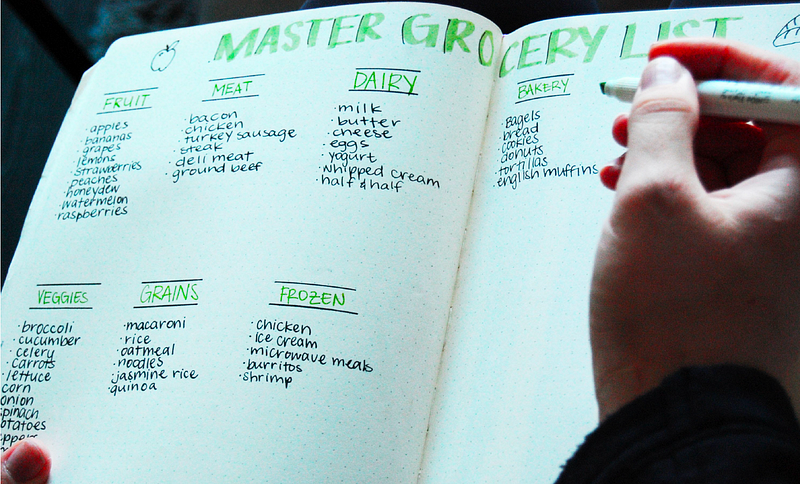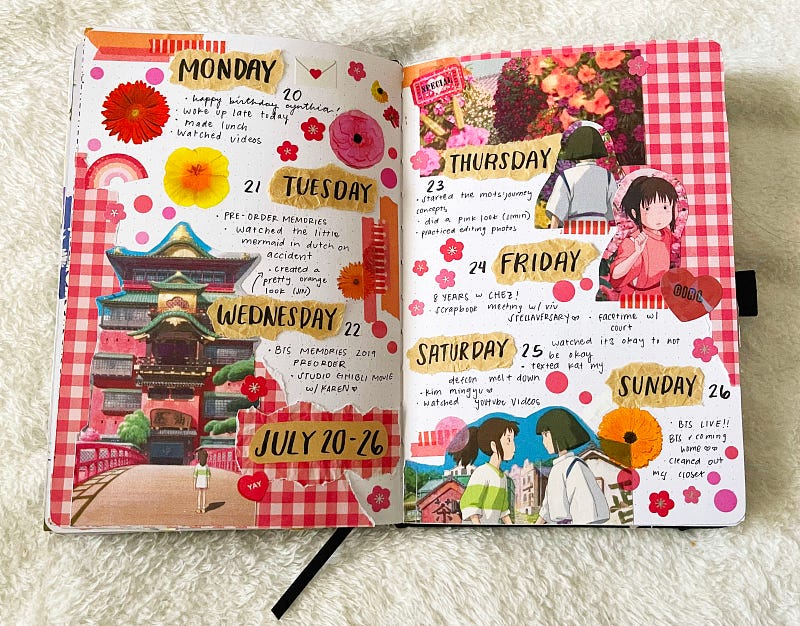The History Of A Diary
How a blank notebook that began out as a diary has been transformed over time into what it is today.
Story By Kiahna White-Alcain
Dear Diary. It’s a phrase most of us are familiar with, especially from a young age. It’s usually followed by sentences about our current crush of the week or what best friend is just so annoying right now. A little notebook littered with our deepest darkest secrets covered with “Do not read!” or “Keep out!” written on the front cover. If you were lucky, your diary came with a lock and key that you’d eventually misplace.
A diary is a record of events, transactions, or observations kept daily or at frequent intervals. It’s a way for people to keep a daily record of personal activities and reflections of feelings.
For many, a diary is the deepest form of a secret and the one place many people turn to in uncertain times.
Logan Adams spends her days managing a pet store, filling her spare time with the practice of candle making, all while trying to maintain a positive and steady mental health.
Adams has been an advocate for journaling as a form of self-help and mental health for years now, turning to her journal in troubling times, she said.
Journaling can help you gain control of your emotions and improve your mental health.
“I have my ‘journal’ journal that I have absolutely everything in,” Adams said.
She’s been consistently journaling for about two years. She’s seen a therapist for just under a year and likes to utilize her journal as a way of making conversation with her therapist in between sessions.
“[Writing in my journal] helps me get it out of my brain,” Adams said. “If there’s something I need to talk to my therapist about, but I can’t actually talk to her, I’ll write it down.”
Adams is a huge advocate for mental health and self-love, and has never been shy about her journey with mental health. She published a book in January 2019, titled “Self Loved,” a compilation of unfiltered answers from anonymous people about self-love and what it means to them.
For Adams, journaling has been a way for her to see her growth within herself and her mental health.
“I can look back at something that happened a year ago and see how it affected me then and how it’s different now,” Adams said, often reflecting on past journal entries she’s written.
One of Adams’ favorite forms of journaling is writing a letter to someone or about something, then burning it.
“I do that a lot,” Adams said.
She utilizes this method as a way of letting go and releasing any pain, hurt or disdain she has for what she’s writing. It’s her way of quite literally burning the past.
The first-ever recorded diary was written by Marcus Aurelius, a Roman Emperor from 161 to 180 A.D. It was a series of personal writings called “Meditations,” recording his private notes to himself and his ideas on Stoic philosophy.
More notably known are the diaries of Lewis and Clark from 1803–1806, where they tracked their expedition across North America in multiple diaries. Diaries filling nearly 5,000 pages with words, sketches of plants and animals documented their entire journey for the rest of the world to see.
From Anne Frank, a Jewish girl in Amsterdam during the Nazi era, came a diary that chronicled her family’s experiences living in hiding to escape persecution. They were ultimately betrayed and discovered, and most of the family perished in concentration camps.
The diary, originally written in Dutch, documented her time in hiding from 1942–1944. It was later published in 1947. One thing that made this diary unique was the “person” in which Frank’s diary was directed to. As most diaries are directed Dear Diary, Frank lettered her diary entries Dear Kitty.
But why a diary? Why do we put the word diary on a pedestal so high? What exactly is the difference between a diary and simply writing in a journal? Is there one?
“The term diary has always been associated as being a feminine thing,” Abbey Paolim, a soon to be graduate from California State University Fullerton, said. “The term journal is a more neutral term, in terms that it’s not too masculine or too feminine.”
Paolim has used bullet journaling as her form of creativity and release for over two years now.
Bullet journaling, or BuJo, which became more popularized in 2014, is a diary that also incorporates planning, to-do lists, and brainstorming.

Silver-Fajardo
It’s something you personalize yourself, decorating the pages as much or as little as your desire. For Paolim, it’s all of the above.
“I like structure in my life,” Paolim said about her love for bullet journaling over your typical pen-to-paper regular journal. “Allowing myself to be creative while also having a structure is something I really enjoy.”
Paolim treats each page layout as if it’s its own story, utilizing certain themes or specific colors to the pages. For Paolim, it’s almost like a scrapbook where she’s able to look back on her memories throughout the year.
“I like that I can put anything into my bullet journal and have it separated by months,” Paolim said. “I can make [the pages] cohesive to a theme.”
Paolim thinks the typical act of journaling can be very overwhelming, seeing her thoughts and ideas just dropped onto a blank page.
“If I’m allowed to express my thoughts through photos and collaging, instead of just writing it down, it allows me to have a better image of what’s going on inside my head,” Paolim said.
For others, the ways in which they can express themselves through a diary or journal are abundant.

Similar to bullet journaling is the newly growing “junk journaling.” Junk journaling can be interpreted as a form of scrapbooking and journaling together. Junk journaling often uses photographs or old book pages, which allows you to repurpose old things into a creative way.
There are common misconceptions about journaling, though, such as if you journal you must be mentally unstable, or go to therapy, or have no friends to talk to.
People often give the timeless excuse they just don’t have the time to write in a journal.
University of Rochester Health Encyclopedia says journaling can help manage anxiety, reduce stress, and/or be a way to cope with depression. Journaling can help you gain control of your emotions and improve your mental health.
In a study published by the journal, “Behavior Therapy,” researchers found participating in expressive writing and journaling helped lower depression symptoms for depression-vulnerable college students.
Numerous studies also cited in the researchers’ work have found that writing about one’s deepest thoughts and feelings about emotional upheavals can positively affect mental and physical health.
Emilija Thorburn, a recent psychology graduate living in Portland, couldn’t agree more.
Thorburn is currently a patient care assistant at a mental health and detox hospital.
“A lot of therapy is often accessing emotions,” Thorburn said. “[Journaling] can be a way to go hand-in-hand with therapy and add to it, while also doing it by yourself.”
While studies show there are no obvious harms to journaling, Thorburn thinks that if you’re journaling just to journal and not actually seeking something out of it, it could potentially be harmful to be stuck in that negative mindset.
“I think [journaling] can help you to evaluate your thoughts, behaviors and emotions,” Thorburn said. “It can help you to see other people’s perspectives if you’re writing [your thoughts] out.”
A Cambridge journal by Karen A. Baikie and Kay Wilhel suggests that journaling can be particularly useful for people who might suffer from a history of post-traumatic stress disorder (PTSD) conditions, or have a history of trauma.
The long-term benefits journaling can have on your mental health are definitely extensive, ranging from reduced blood pressure to improving and increasing students’ grade point average, according to Baikie and Wilhel.
Journaling appears to have great potential as a therapeutic tool in diverse settings or as a means of self-help. Journaling can either be done alone in its own practice or as an adjunct to traditional therapies.
The history of the diary and journaling has been transformed and adapted in many new creative ways. As something that started out as a way to document history, to a creative release for others, it’s purpose has led to an expressive outlet for many.
From a diary about your deepest darkest secrets, to pen-to-paper journaling, to a bullet journal, to the newly founded junk journaling, the history of a diary is still ever-growing.
